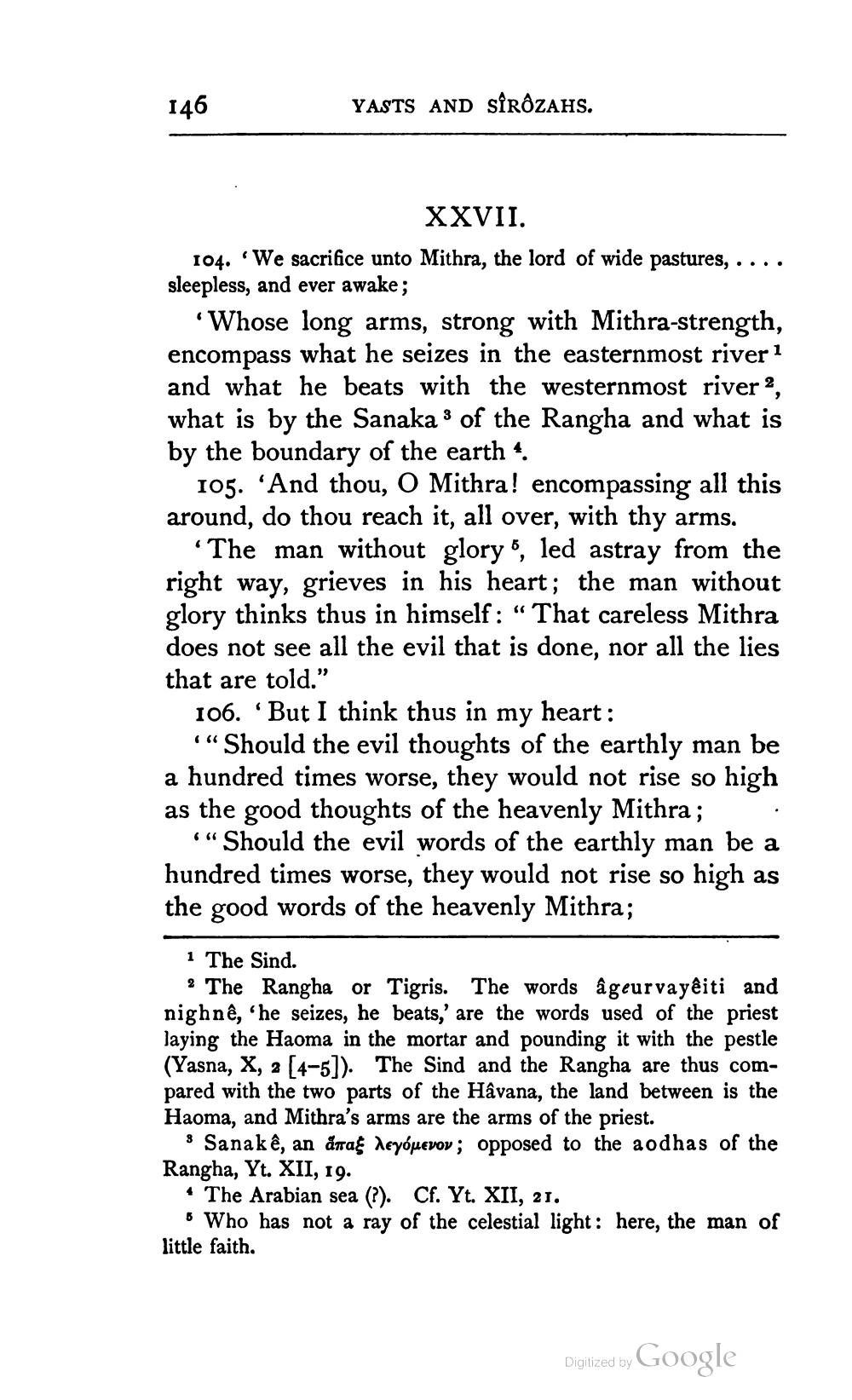________________
146
YASTS AND SÎRÔZAHS.
XXVII. 104. We sacrifice unto Mithra, the lord of wide pastures, .... sleepless, and ever awake;
Whose long arms, strong with Mithra-strength, encompass what he seizes in the easternmost river 1 and what he beats with the westernmost river 2, what is by the Sanaka : of the Rangha and what is by the boundary of the earth *.
105. 'And thou, O Mithra! encompassing all this around, do thou reach it, all over, with thy arms.
*The man without glory 5, led astray from the right way, grieves in his heart; the man without glory thinks thus in himself: "That careless Mithra does not see all the evil that is done, nor all the lies that are told.”
106. 'But I think thus in my heart:
""Should the evil thoughts of the earthly man be a hundred times worse, they would not rise so high as the good thoughts of the heavenly Mithra;
“"Should the evil words of the earthly man be a hundred times worse, they would not rise so high as the good words of the heavenly Mithra;
1 The Sind.
The Rangha or Tigris. The words âgeurvayêiti and nighnê, 'he seizes, he beats,' are the words used of the priest laying the Haoma in the mortar and pounding it with the pestle (Yasna, X, 2 [4-5]). The Sind and the Rangha are thus compared with the two parts of the Havana, the land between is the Haoma, and Mithra's arms are the arms of the priest.
Sanakê, an drag leyóuevov; opposed to the aodhas of the Rangha, Yt. XII, 19. • The Arabian sea (?). Cf. Yt. XII, 21.
Who has not a ray of the celestial light: here, the man of little faith.
Digitized by Google




